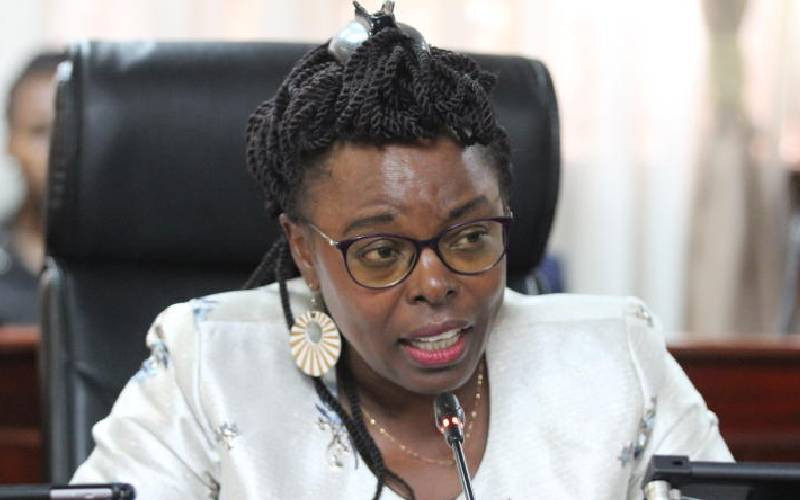By TWV Team
Nairobi Governor Johnson Sakaja’s administration has come under sharp scrutiny after massive recruitment at City Hall pushed the county government’s wage bill to unprecedented levels. According to Auditor General Nancy Gathungu’s latest report, the wage bill has more than tripled in just three years to reach Ksh17.3 billion.
The report reveals that most of the hiring occurred by June 2024, when the county’s staff establishment surged to 13,355 from 5,777 in 2022, more than double the workforce in just two years. During the same period, staff compensation rose to Ksh11.18 billion, driving an 86.4 per cent increase in payroll costs. This sharp escalation has strained resources, leaving limited fiscal room for development projects.
“Over the three years under review, there was a drastic increase in the number of employees and payroll costs,” Gathungu noted in her assessment of Nairobi’s payroll management.
The wage bill now consumes 55.9 per cent of expenditure, far above the 35 per cent ceiling stipulated under Public Finance Management regulations. In addition to hiring, Sakaja also converted casual workers into permanent and pensionable staff, further inflating payroll obligations. The audit was conducted using both manual records and the Integrated Payroll and Personnel Database (IPPD).
City Hall has faced mounting challenges in meeting salary obligations, with health workers among others frequently staging protests over delays. Recently, Chief of Staff Godfrey Akumali admitted to staff that August 2025 salaries would be delayed due to late equitable share disbursements from the National Treasury.
The Auditor General’s revelations come amid growing political tension. Sakaja is locked in a dispute with Members of the County Assembly (MCAs) over delays in bursary and ward development funds, delays that recently triggered an impeachment plot by 70 MCAs. The move was forestalled only after President William Ruto and ODM leader Raila Odinga intervened to avert a crisis in the capital.
While Sakaja blames the Treasury’s slow disbursements and a ban by Controller of Budget Margaret Nyakango on county-administered bursaries, his political rival in the 2027 gubernatorial race, Murang’a Governor Irungu Kang’ata, has accused him of failing to raise Nairobi’s own-source revenue from the current Ksh14 billion to its estimated potential of Ksh40 billion annually.
The Salaries and Remuneration Commission (SRC) has separately warned that counties are overspending on wages and allowances. Its latest data shows personnel costs rose sharply in the year ended June 2025, with the wage bill-to-revenue ratio hitting 44 per cent in the first quarter and peaking at 54.7 per cent in the third.
“When a substantial share of government revenue is allocated to recurrent personnel expenditures, it constrains fiscal space, thereby limiting the government’s capacity to invest in critical development priorities such as healthcare, education, infrastructure, and debt servicing,” the SRC cautioned.
An earlier Auditor General’s report for the 2023/24 financial year showed that 36 counties had already breached the legal ceiling on wage bills, underscoring a national fiscal crisis that continues to deepen.





